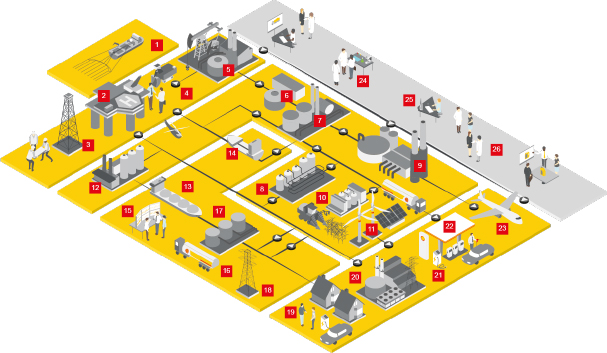Norway
537 Employees
-
Third-party revenues
$303,264,641
-
Related-party revenues
$1,321,186,301
-
Total revenues
$1,624,450,942
-
Profit before tax
$438,890,348
-
Tax paid
$469,074,740
-
Tax accrued
$373,795,265
-
Tangible assets
$1,182,022,259
-
Stated capital
$92,581,373
-
Accumulated earnings
$947,382,610
Main Business Activities
- Upstream and Integrated Gas
Shell has been present in Norway since 1912. The main activity of A/S Norske Shell is the exploration and production of oil and gas on the Norwegian continental shelf. The company is a partner in 27 production licences and operates 14 of them. There are two Shell-operated fields which are producing: Ormen Lange (Shell interest 17.8%) and Knarr (Shell interest 45%). The company also has an interest in the producing field Troll (Shell interest 8.1%), which is operated by Equinor.
A/S Norske Shell is a partner in the Northern Lights project for the transport and storage of CO2 in a government-backed carbon capture and storage (CCS) project. The aim is to safely transport and store captured CO2 from a cement factory while creating a market for permanent storage of CO2 from third-party sources.
Gasnor AS was a wholly owned subsidiary providing LNG to industry and marine markets. The company was divested in 2021.
Country Financial Analysis
The statutory corporate income tax rate in Norway is 22%. In addition, there is a special tax of 56% on the production and transportation of petroleum from the Norwegian continental shelf. Taxes are paid in instalments, with half being due within the year in which income arises and the other half and final assessment in the year after. Tax paid includes payments for 2019 and 2020.
In 2020, Norway introduced temporary tax incentives for the petroleum industry as a response to declining energy prices and economic uncertainty, both of which may have reduced planned oil and gas investment. See Norway case study for more information.
Our Payments to Governments Report for 2020 also shows that Shell paid around $1.33 billion in production entitlements and fees.








